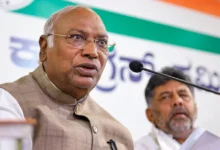Get to know Pallabi Ghosh, the woman who raised a 75,000-strong army to combat human trafficking
Pallabi Ghosh, a Bengaluru-based campaigner against human trafficking, has a busy existence. Her days are full with problems as she answers 10 to 15 phone calls a day about missing children, assists law police with raids, and offers counseling to survivors. At the age of 14, she set off on her adventure more than twenty years ago with her uncle, traveling to a hamlet located in the South 24 Parganas area of West Bengal. She became enthused about stopping human trafficking after seeing a parent there desperately looking for his lost daughter.

She was taken aback by the occurrence, particularly since she was from the sleepy Assamese railway town of Lumding. Ghosh, who was just twelve, went with the distraught father to search the region for the missing daughter, but they found no evidence. Feeling disheartened, she wrote down the village and father’s name and went back home.
She was so intrigued by the experience that she decided to look into missing children since it was still fresh in her memory. Through his investigation, Ghosh came into contact with the grim reality of human trafficking. She found several instances of women going missing from West Bengal, Odisha, Assam, and Karnataka, only to be forced into marriages with men twice their age in Rajasthan and Haryana.
Ghosh discovered a horrific plan in 2020 where infants were mislabeled as Covid-19 positive and then tragically killed in order to enable illicit organ harvesting. After learning this information, Ghosh was inspired to create the Impact and Dialogue Foundation. This group works to stop human trafficking and modern slavery by stopping such crimes, rescuing victims, and giving survivors in India rehabilitation.
We conducted door-to-door efforts to raise awareness of human trafficking among the villagers once we became aware of the organ harvesting that was occurring during the epidemic, particularly in communities that shared borders with Bhutan and Myanmar. According to The Indian Express story, Ghosh said, “We trained the villagers and the village heads in identifying human trafficking incidents and tasked them with the responsibility of averting such incidents.”
While operations against human trafficking organizations may seem daring to some, Ghosh issued a warning about the many obstacles that anti-trafficking advocates must overcome.
Many people think it’s daring for anti-trafficking advocates to go on raids with law police and expose the human trafficking industry. However, it isn’t. I have to go for fifteen hours by rail, take a toto, walk, and then do the grueling task of identifying the victims,” Ghosh said.
Ghosh expounded upon the formidable obstacles encountered by anti-trafficking advocates, underscoring the arduous task of convincing law enforcement officers to lodge First Information Reports and open prosecutions under Section 370 of the Indian Penal Code (trafficking). The underreporting of missing instances made it difficult to get precise statistics. Furthermore, obtaining financial resources for anti-trafficking initiatives was a notable challenge, made worse by the acceptance of trafficking in some social groups.
Out of the hundreds of survivors she helped, one situation in particular continues to be very unsettling. Ghosh reflected on it and related an occurrence that happened in North India in 2017. In one instance, a little child whose father had a fatal illness was given to someone who seemed to be well-educated by her mother. Sadly, the girl was sold into modern slavery and suffered horrendous physical torture. After getting a tip from the police, Ghosh oversaw the successful rescue effort.
Ghosh said, “The girl’s ignorance of the agony and suffering she was going through touched me. She suffered from physical assault as well as sexual exploitation. She was oblivious to the agony since she wasn’t aware that anything was wrong. She was certain, therefore, that she would get her meal if she allowed herself to be treated in such a cruel manner.
In order to effectively combat human trafficking, Ghosh emphasized the need of working in tandem with local NGOs, law enforcement, grassroots activists, and survivors. The 4Ps—prevention, protection, collaboration, and prosecution—were used by her to describe her strategy. Ghosh emphasized the need for community awareness to de-stigmatize conversations about human trafficking and urged people to not ignore the problem.
Her main goal is to empower survivors by equipping them with skills and achieving financial independence. She also emphasized how crucial it is to guarantee that incidents of human trafficking end in prosecution and conviction. Regretfully, she mentioned the poor conviction rates—just one instance out of every 100 ending in a conviction.
The Impact and Dialogue Foundation supports disadvantaged groups by providing livelihood possibilities and focuses on rehabilitating survivors as part of its flagship initiative, Project Sahay. With a focus on at-risk tribal girls, the foundation started a one-year stitching course at a vocational training facility in Lumding, Assam, in 2022.







